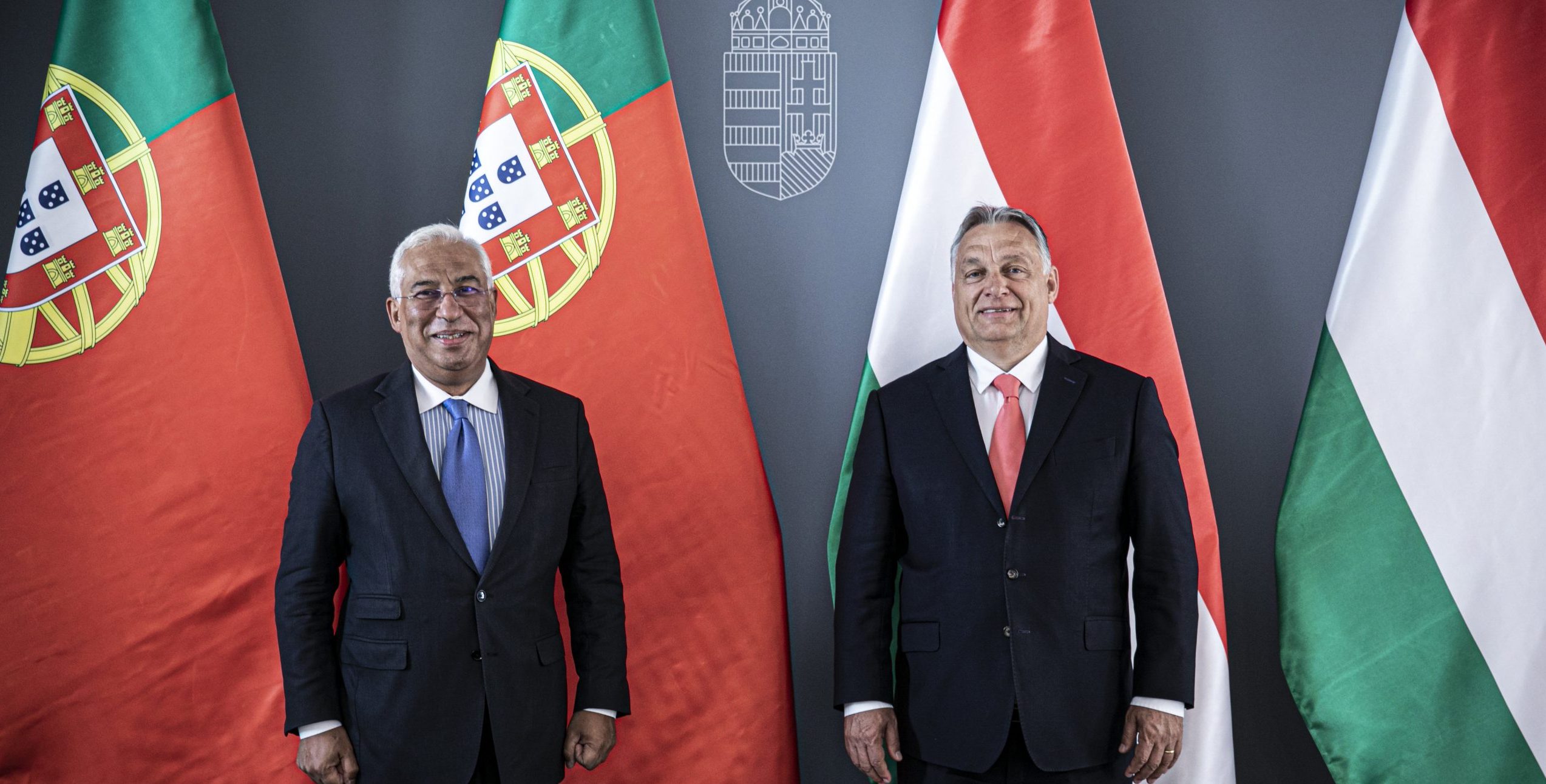
Mészáros László (MTVA): Miniszterelnök úr, Magyarország szempontjából milyen fontos témákról esett szó a mostani tárgyaláson?
Az európai gazdaság volt a mai témánk. Az elmúlt években az európai gazdaságpolitikát Brüsszelben elrontották, ennek hamarosan látni fogjuk a nyilvánvaló következményeit. Már arra számítunk, hogy ebben az évben az eurózóna biztosan elveszíti a növekedési képességét, vagyis megáll, de a zónán kívül is, Közép-Európát is ideértve lehetnek hatásai a korábbi rossz gazdaságpolitikának. Nem csökkentettük az adókat – mármint sok ország, mert Magyarország ezt megtette, de a legtöbb ország nem csökkentette az adókat –, nem támogatta a versenyt, olyan védelmi intézkedéseket vezetett be, amely rossz volt a gazdaságnak, szóval összességében az európai gazdaság versenyképessége világméretében csökkent, és ennek meg kell fizetni az árát. A tárgyalás és a beszélgetés ma arról szólt, hogy mit kell tennünk annak érdekében, hogy az európai gazdaság ismét növekedési pályára álljon, és visszanyerje a versenyképességét. Miután éppen most ér véget az előző, hétéves költségvetés, most egy újat kell megalkotni. Tehát arról beszéltünk, hogy a következő hétéves költségvetést hogyan kell úgy megalkotnunk, hogy az európai gazdaság növekedéséhez, gyarapodásához, így az emberek jólétéhez vezessen el bennünket. A viták elején vagyunk, nagyon messze vannak még az álláspontok.
Miniszterelnök úr, ma az első nap, hogy Nagy-Britannia nem az Európai Unió tagja. Kérem, véleményezze ezt a lépést
A britek kilépése és az, hogy ma mindenki életben van Nagy-Britanniában, azt mutatja, hogy az Európai Unión kívül is van élet.
Prime Minster, are you satisfied with the results of this…
It was a good meeting. You know, we are suffering as the European economy has been losing its competitiveness in recent years, as a result of mistaken economic policy conducted from Brussels. No tax reduction, no reduction of bureaucracy, no decisions in favor of improving competitiveness, just the opposite: to limit the competitiveness even inside of European Union. We will pay the price of that in the global markets. So the slowing down of economic growth is obvious here. This year will be extremely difficult, and if we are not able to create a fair and better budget as we have had in the previous seven years, we cannot accelerate economic growth in the European Union, consequently we cannot help our citizens to have better living conditions. So that kind of dispute about the next seven years budget is serious. Positions are very far from each other, so we need not just days but months to make some agreement which could be accepted by everybody, and all in all can generate again perceivable economic growth again, not just in Central Europe, not just in Hungary but all around in the European countries.
Would you agree with a compromise position like 1.6 as proposed by Portugal and other member states?
I think it is just a technical issue. The main issue is to agree that we would like to get back our competitiveness, you know. The problem is that many countries would like to build a different kind of economy, not based on free trade, not based on competitiveness, not based on the reduction of taxation, but they have a different kind of philosophy. So we have to first clarify how to get back the ability to compete with the outside world. If we agree that this is the direction, it is easier to find a compromise on figures. If we start with figures, you know, but the structure remains the same, it could be hopeless.
What do you think should be the priority to regain competitiveness?
Being flexible. We need a budget which provides as much flexibility as possible for the member states, to encourage those countries who are ready to decrease taxation. I think flexibility and tax decreasement that is the main line – OK, this is the Hungarian experience. Probably other countries can work differently, but in Hungary these measures just have worked.
Are you planning this week to announce that you will leave the EPP group?
No.
You’re not planning to announce or you are not leaving?
No announcement at all.

